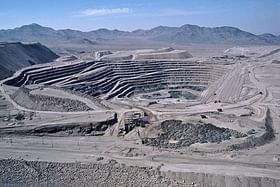India is actively exploring the Union Territory of Jammu and Kashmir in the hopes of discovering more lithium reserves.
Earlier in February 2023, the Ministry of Mines had announced that the Geological Survey of India (GSI) had established “lithium inferred resources” — calculated on the basis of physical and chemical study of the surface and samples — in Salal-Hamima area of Reasi District of Jammu and Kashmir.
The resources to the tune of 5.9 million tonnes (MT) have been established as part of the “Reasi Sersandu-Kherikot-Rahotkot-Darabi” mineral block, where prospecting has been ongoing since 2021-22.
According to officials, exploration activities for searching additional lithium sources is already underway in the Salal Hamima region in Jammu.
“Exploration continues in the region (Resai), and we are hopeful of positive results (more lithium finds) this year itself. This could add to our lithium resource base,” Vivek Bharadwaj, secretary, Mines Ministry said.
Auction By December
The Centre has asked the Jammu and Kashmir administration to start the auction of Lithium reserves found in Reasi, by December this year.
“We have given them the report and asked them to conduct auctions at the earliest,” Pralhad Joshi, Union Minister for Mines and Coal, said.
The Ministry is currently in the process of determining the reserve price, also known as the average selling price, for these reserves. Further, the Jammu and Kashmir administration is also in the process of appointing a transaction advisor.
The transaction advisor will offer suggestions to the government on the procedure and method of auction besides preparing the model bid document.
Lithium Criticality
Also referred to as “white gold”, lithium is a non-ferrous metal and is used in rechargeable batteries, which power not only laptops and mobile phones but also electric vehicles (EVs) — a crucial part of the world’s plan to tackle climate change.
Lithium-ion batteries offer a longer life cycle as compared to traditional lead-acid batteries.
However, the main reason for their high adoption in EVs is their high energy density. High energy density allows lithium-ion batteries to store more energy in less weight/volume, which is an ideal requirement for e-mobility applications.
Also Read: Explainer: Risks And Roadmap Of Mining Lithium Reserve Discovered in J&K









